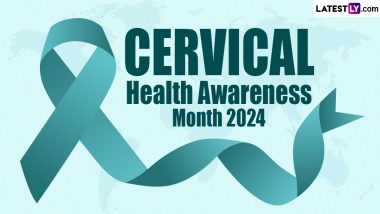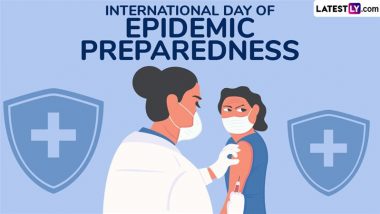Every January, a spotlight shines on an essential aspect of women's health: Cervical Health Awareness Month. This dedicated period educates and raises awareness about cervical health, emphasizing prevention, early detection, and the significance of regular screenings. Understanding the history, significance, and importance of cervical health is key to empowering individuals to take charge of their well-being.
Cervical Health Awareness Month History
Cervical Health Awareness Month traces its origins to a concerted effort by healthcare organizations and advocacy groups to highlight the importance of cervical health. Spearheaded by the National Cervical Cancer Coalition (NCCC), this initiative began over a decade ago, aiming to combat cervical cancer's prevalence and emphasize preventive measures.
The NCCC, alongside numerous health institutions and advocates, sought to educate individuals about the risks of cervical cancer, the role of Human Papillomavirus (HPV) in its development, and the importance of regular screenings and vaccinations. By designating January as Cervical Health Awareness Month, these entities aimed to unify efforts, encouraging women to prioritize their cervical health and well-being.
Cervical Health Awareness Month Significance
Cervical health is crucial for women's overall well-being. The cervix, a part of the female reproductive system, plays a pivotal role in fertility, childbirth, and protection against infections. However, it is also susceptible to various health issues, primarily cervical cancer—a preventable disease.
Cervical cancer is largely caused by specific strains of HPV, a common sexually transmitted infection. Regular screenings, such as Pap smears and HPV tests, enable early detection of abnormal cell changes, allowing for timely intervention and treatment, potentially preventing the progression of cervical cancer.
Additionally, the development of HPV vaccines has significantly contributed to cervical health by offering protection against certain strains of the virus. Vaccination, often recommended during adolescence, aids in preventing HPV infection and subsequently lowers the risk of cervical cancer.
Understanding Cervical Health
Cervical health encompasses various aspects of well-being related to the cervix and its surrounding tissues. Key components include:
Regular Screenings: Routine screenings, like Pap smears and HPV tests, are critical for detecting abnormal changes in cervical cells, allowing for early intervention.
HPV Vaccination: Vaccination against HPV significantly reduces the risk of developing cervical cancer and other HPV-related diseases. It's recommended for adolescents before they become sexually active. Can You Contract STIs from Unprotected Sex You Had Years Ago? How Long Does It Take for STD Symptoms to Appear? Everything You Need to Know.
Healthy Lifestyle Choices: Maintaining a healthy lifestyle, including practicing safe sex, quitting smoking, and adopting a balanced diet, contributes to overall cervical health.
Awareness and Education: Being informed about cervical health, understanding risk factors, and seeking regular check-ups are pivotal steps in preventive care.
During Cervical Health Awareness Month, individuals can take proactive steps to prioritize their cervical health:
- Schedule Regular Check-ups: Consult healthcare providers for routine screenings and discuss any concerns or symptoms promptly.
- Encourage Vaccination: Encourage young individuals to receive the HPV vaccine as part of preventive healthcare.
- Spread Awareness: Educate friends, family, and communities about the significance of cervical health, emphasizing preventive measures and early detection.
Cervical Health Awareness Month serves as a reminder for individuals to prioritize their cervical health throughout the year. By understanding the significance of regular screenings, HPV vaccination, and healthy lifestyle choices, individuals can take proactive steps toward preventing cervical cancer and promoting overall well-being. Embracing knowledge, regular check-ups, and community support can significantly impact women's health, ensuring a future where cervical health issues are minimized through awareness and preventive measures.
(This article is written for an informative purpose and should not be substituted for medical advice. Kindly consult your doctor before trying any tips.)
(The above story first appeared on LatestLY on Jan 09, 2024 11:42 AM IST. For more news and updates on politics, world, sports, entertainment and lifestyle, log on to our website latestly.com).













 Quickly
Quickly





















